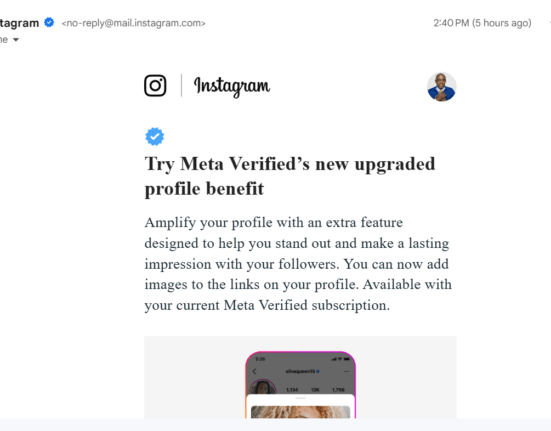Ever wondered what sets apart your regular customers from the ones who stick around through thick and thin? Loyal customers are the lifeblood of any business. They bring in consistent revenue to businesses. They also serve as brand ambassadors, spreading positive word-of-mouth. Thus, keeping the existing regular customers happy and loyal is important. Did you know US companies could save over $35 billion per year by focusing on keeping their existing customers happy? But is there any way to identify the existing loyal customers? In this post, I’ll discuss how to identify loyal customers and why they’re crucial for the success of your business.
Let’s dive in!
Track Repeat Purchases
Consistently monitor customers who repeatedly purchase from your business. This is crucial for identifying loyal patrons. When individuals return for multiple transactions, it’s a clear indication of their trust and satisfaction with your products or services. This consistent patronage not only showcases their loyalty but also contributes significantly to your business’s revenue stream.
Track these repeat purchases. This way, you can pinpoint those customers who are most loyal to your brand and tailor your marketing efforts accordingly.
Engage on Social Media
Loyal customers often show their support by actively engaging with your brand on various social media platforms. Whether they are liking, sharing, or commenting on your posts, their interactions indicate a strong connection with your business. This engagement helps boost your online presence. It also serves as a valuable indicator of customer loyalty.
Monitor these interactions closely. Eventually, you can identify those customers who are most committed to your brand and foster deeper relationships with them.
Participation in Loyalty Programs
This is another way to identify loyal customers. When customers regularly redeem rewards, accumulate points, and engage with your loyalty initiatives, it shows their commitment to your brand.
Encourage their participation and closely monitor engagement within these programs. You can easily identify and reward your most loyal customers effectively. In addition, analyzing participation patterns and preferences can provide valuable insights into customer behavior. You will be able to tailor your loyalty programs as per their needs and preferences.
Provide Feedback
Loyal customers often go the extra mile by providing valuable feedback and suggestions for improvement. Their willingness to share insights and experiences reflects a genuine interest in your brand’s success.
Solicit and listen to customer feedback. You will identify areas for improvement and strengthen relationships with your most loyal patrons. Additionally, acknowledging and acting upon customer feedback demonstrates your commitment to delivering exceptional customer experiences, further fostering loyalty and advocacy.
Referral Behavior
Loyal customers frequently act as brand advocates by referring friends, family, and colleagues to your business. Their willingness to recommend your products or services speaks volumes about their satisfaction and trust in your brand.
Recognize and reward referral behavior. This encourages loyal customers to continue spreading positive word-of-mouth and attract new business. Additionally, monitor referral patterns to identify your most loyal customers and tailor marketing initiatives to further engage and retain them. By leveraging the power of customer referrals, you can amplify your brand’s reach and cultivate long-term loyalty among your customer base.
Consistent Communication
Loyal customers maintain regular communication with your brand through various channels, such as email newsletters, updates, and promotions. Their active engagement indicates a strong ongoing interest in your products or services.
By consistently staying in touch with your audience and providing relevant and valuable content, you can nurture these relationships and solidify customer loyalty over time. Effective communication fosters trust and transparency. As a result, this approach allows you to address any concerns or inquiries promptly and maintain a positive rapport with your customers.
Positive Reviews and Testimonials
Satisfied customers often leave positive reviews and testimonials on your website or review platforms. These endorsements not only boost your brand’s reputation but also serve as social proof of customer satisfaction and loyalty.
If you show encouragement and showcase these testimonials on your website and other social platforms, it inspires confidence in potential customers and reinforces loyalty among existing ones. Moreover, responding to reviews, whether positive or negative, demonstrates your commitment to customer satisfaction and allows you to address any issues or concerns publicly, further enhancing trust and credibility.
Longevity
Customers who have been loyal to your brand for an extended period are valuable assets. Their continued support over time shows a strong affinity for your products or services.
Identify your customers’ loyalty and acknowledge it. This way, you can strengthen these relationships and foster customer retention. Additionally, long-term customers often become brand advocates. They recommend your business to others and contribute to organic growth. By acknowledging their loyalty through personalized rewards or exclusive offers, you can further incentivize repeat purchases and deepen customer loyalty, turning satisfied customers into loyal brand ambassadors.
Attendance at Events
Loyal customers frequently attend events hosted by your business, such as product launches, workshops, or customer appreciation days. Their participation demonstrates a deeper level of engagement and commitment to your brand beyond mere transactions.
By organizing engaging events and recognizing loyal attendees, you can further cultivate these relationships and enhance customer loyalty. Events provide valuable opportunities for direct interaction with customers. You get to gather feedback, strengthen connections, and reinforce brand loyalty through memorable experiences.
Flexibility and Understanding
During challenging situations, such as product recalls or delays, loyal customers demonstrate patience, flexibility, and understanding. Their willingness to stick by your brand during difficult times reflects a strong bond and trust.
Acknowledge their support and address any issues promptly and transparently. This helps you reinforce customer loyalty and preserve long-term relationships. Maintain open communication channels and offer solutions or compensations when necessary. This way, you can further solidify customer trust and loyalty, turning potential challenges into opportunities for strengthening customer relationships.
Also Read: Why Is Customer Loyalty Important?
Now, Can You Identify Loyal Customers?
Recognizing loyal customers is vital for business growth. Look for repeat purchases, social media engagement, and loyalty program participation. Also, listen to feedback and acknowledge customer loyalty. Prioritizing these steps helps identify and retain loyal customers effectively. Start implementing these strategies today to strengthen customer loyalty and drive sustainable growth for your business!
Additional Resources:







